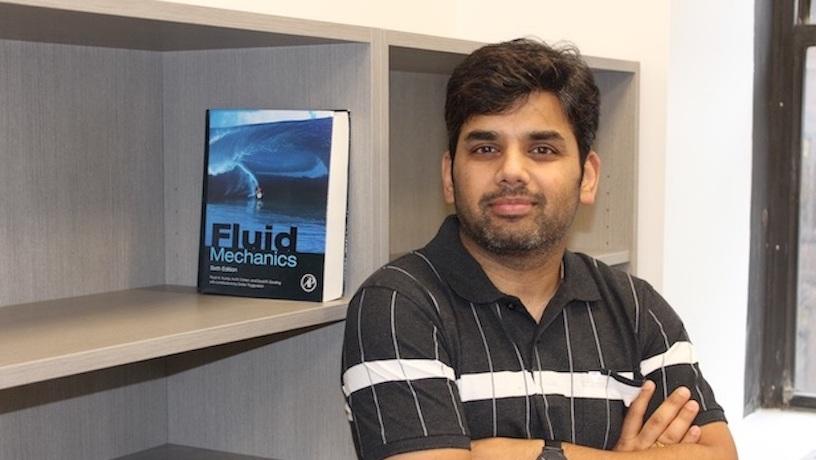Vijay Vedula: Welcome to Mechanical Engineering

The Department of Mechanical Engineering welcomes Vijay Vedula, Ph.D., who joined the department as an Assistant Professor in January 2020.
Vedula joins Columbia from Stanford University, where he was a Postdoctoral Fellow in the Department of Pediatrics from 2015 to 2019. Prior to that, Vedula spent a short period of time as a Postdoctoral Fellow in Mechanical and Aerospace Engineering Department at the University of California, San Diego. Vedula received his Ph.D. in Mechanical Engineering from Johns Hopkins University in 2015, his M.Tech in Aerospace Engineering from the Indian Institute of Technology in Kanpur, India in 2009, and his B.Tech in Mechanical Engineering from the National Institute of Technology in Trichy, India in 2007.
Merging a dual passion for medicine and computational sciences, Vedula’s research focuses on the application of multi-physics modeling to cardiac disease and development. “While I was pursuing my Ph.D., my advisor, Professor Rajat Mittal, had two projects: one involved modeling blood flow for cardiovascular applications and the other focused on modeling insect flight with classical aerodynamics principles and applications in designing micro air vehicles,” he explains. “Although I had a strong inclination to undertake the later, especially with my aerodynamics background, my innate excitement in learning something new drove me to pursue the former. I have been working on biomechanics applications ever since and am further bolstered from recent successful examples such as Heartflow, Inc., a medical technology company that uses computational modeling to improve the clinical diagnosis and management of coronary artery disease.”
“Multi-physics modeling is useful in the detection and treatment of a variety of heart conditions including hypertrophic cardiomyopathy, right ventricular failure in patients with single ventricle physiology, valvular dysfunction due to calcifications, and myocardial infarction and heart failure,” explains Vedula. “I am also interested in applying the model to better understand the role of mechanics during the development of heart tissue including the His-Purkinje network and the heart valves. These projects are highly interdisciplinary, involving collaborations with clinicians, biologists and biomedical engineers.”
Vedula is currently involved in a NSF-sponsored project that employs multi-physics modeling of cardiac function, collaborating with his postdoctoral supervisor, Alison Marsden, Ph.D., and Ellen Kuhl, Ph.D., both at Stanford University, as well as Shawn Shadden, Ph.D. at UC Berkeley. “One of the specific aims of the project is to develop a personalized comprehensive whole heart model coupling cardiac electrophysiology, tissue mechanics and blood flow together with valvular interactions,” explains Vedula. “It is a highly complex problem and we are developing novel methods to overcome several challenges associated with coupling multiple physics and at multiple scales, in addition to making it patient-specific.”
As Assistant Professor, Vedula teaches students computational fluid dynamics and cardiovascular biomechanics with hands-on projects. “I hope to impart scientific and ethical values as a researcher, and to strongly encourage my students to focus on social and community development to tackle some of the problems we are facing together including health, energy, and climate,” he says. “Being located in New York City and with access to the other elite schools of Columbia, I strongly recommend that my students grab every opportunity they could to understand the societal needs and work toward a better future.”
